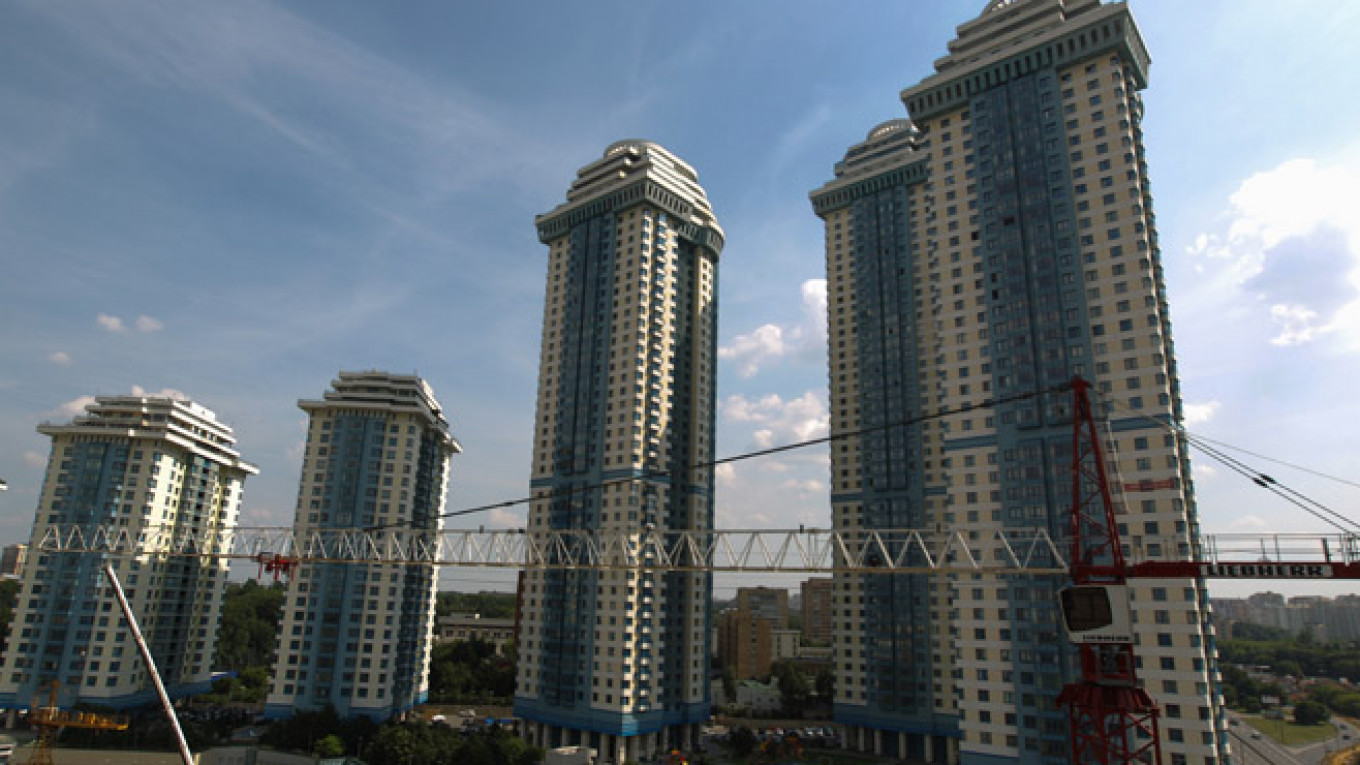Despite a tightening of Western sanctions and a stuttering economy, investment in Russian real estate grew in the third quarter of the year, and the share of foreign capital channeled into development projects increased.
Real estate investment volumes reached $1.4 billion in the third quarter — more than was invested in the sector over the whole first half of the year, according to a report published by Jones Lang LaSalle last week.
"However, tensions between Russia and the West, the slowdown in the Russian economy as well as continued exchange rate volatility still reflect considerable risks for investors, especially foreign ones," Tom Mundy, head of research at JLL Russia and CIS, said in a statement.
With that in mind, it is unlikely that a positive third quarter will blossom into a full recovery of a once booming market. Full-year investment volumes are expected at $3.4 billion, down from $8.1 billion last year, Mundy said.
Russia, Europe's largest property market, saw a surge in real estate investment over the last decade. After a brief wobble caused by the 2008-09 financial crisis, volumes rebounded to record levels of more than $8 billion annually.
According to data from international real estate consultancy CBRE, two-thirds of all investment in the third quarter of this year — or more than $1 billion — was channeled into office construction. The remaining $400 million financed residential construction, shopping malls and sports facilities.
While local investors still dominate the real estate market, accounting for 70 percent of all deals, foreign investors have actually become more active.
Since the beginning of the year, the share of foreign investors has grown to 35 percent, up from 27 percent last year, CBRE said.
The largest investors were the Qatar Investment Authority, Goldman Sachs and Eastern Property Holdings, a Russia-oriented real estate investment firm registered in the British Virgin Islands. Together, these accounted for a majority of cross border investments.
"In general, international players continue to be actively searching for investment opportunities and expressing interest in Russian commercial real estate," said Anna Melnik, head of capital markets research at CBRE.
However, most cross-border players are conservative and prefer to wait until there is less uncertainty on the market, she added.
There is plenty of uncertainty around. Russia's economy is struggling to steer clear of recession under the weight of Western sanctions. Oil prices — the backbone of the Russia's finances — are falling, and the ruble hit a new historic low against the U.S. dollar on Monday after plummeting more than 20 percent against the greenback this year.
Investors in office and retail real estate will likely be hit the hardest by this uncertainty and sanctions, said Konstantin Timofeyev, head of Moskomstroyinvest, the municipal committee responsible for construction investment projects.
"Retailers are reporting decreased stock and revenues and they are being forced to ask for lower rental rates. Shopping centers are already full to only 70 percent of capacity," Timofeyev told news agency RIA Novosti on Monday.
The majority of real investment projects are still located in Moscow, which accounted for 88 percent of total real estate investment so far this year, compared with 83 percent in the same period of 2013. St. Petersburg's share reached 7 percent, while the regions attracted only 5 percent, according to Jones Lang LaSalle.
Contact the author at a.panin@imedia.ru
A Message from The Moscow Times:
Dear readers,
We are facing unprecedented challenges. Russia's Prosecutor General's Office has designated The Moscow Times as an "undesirable" organization, criminalizing our work and putting our staff at risk of prosecution. This follows our earlier unjust labeling as a "foreign agent."
These actions are direct attempts to silence independent journalism in Russia. The authorities claim our work "discredits the decisions of the Russian leadership." We see things differently: we strive to provide accurate, unbiased reporting on Russia.
We, the journalists of The Moscow Times, refuse to be silenced. But to continue our work, we need your help.
Your support, no matter how small, makes a world of difference. If you can, please support us monthly starting from just $2. It's quick to set up, and every contribution makes a significant impact.
By supporting The Moscow Times, you're defending open, independent journalism in the face of repression. Thank you for standing with us.
Remind me later.






